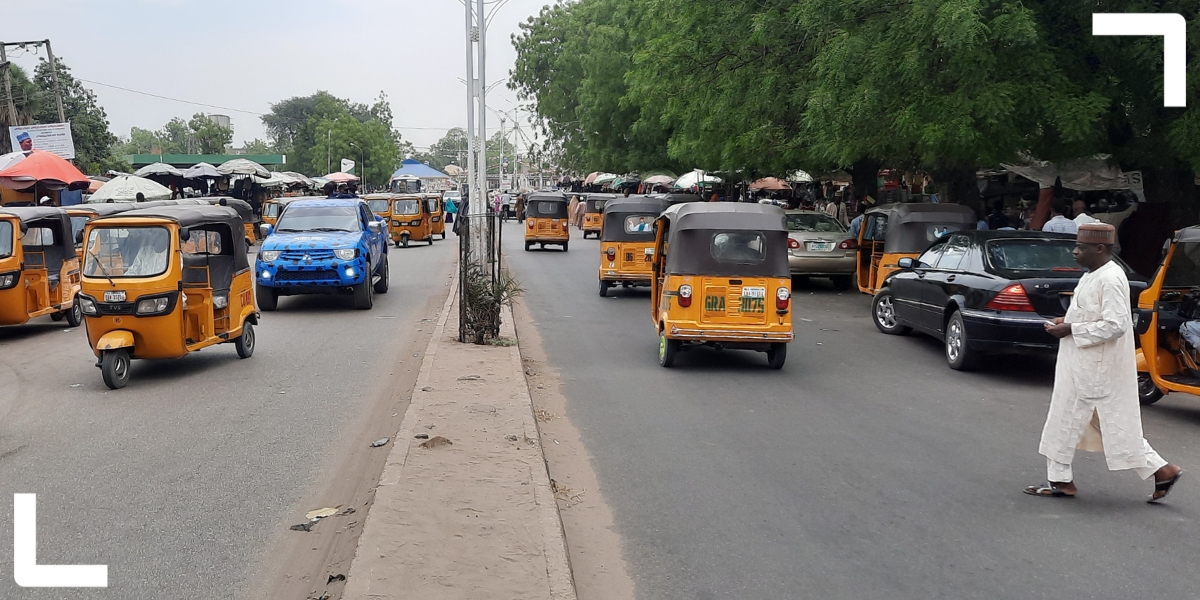ACRC has published a new paper synthesising research findings from political settlements, city system and urban development domain analyses of Maiduguri, Nigeria. Domain research in the city focused on safety and security, land and connectivity and youth and capability development.
Maiduguri is the largest city in northeast Nigeria and the capital of Borno State. It faces multifaceted challenges stemming from endemic poverty, governance gaps and the lasting impact of the Boko Haram insurgency that started in 2009.
Unlike other African cities studied in ACRC’s foundation phase, Maiduguri does not have a city government. Administratively, the urban area is spread across five local government areas – Maiduguri Metropolitan, Jere, Konduga, Mafa and Magumeri. The political landscape is marked by power concentration in the state governor and intersects with issues of “godfatherism” and limited influence for some demographic groups.
In this report, Katja Starc Card, Imrana Buba, Abubakar K Monguno, Haruna Ayuba, Kingsley L Madueke and Stephen B Ajadi, present an in-depth understanding of Maiduguri’s complexities, offering insights into the city’s political landscape and prospects for urban reform. The study provides a critique of ACRC’s theory of change and proposes ways to optimise the conceptual framework at the city level.
The research draws from secondary and primary data sources, with primary data generated through structured and semi-structured interviews with 5,110 residents, 193 in-depth key informant interviews, and 37 focus group interviews with 186 participants. Literature reviews extensively covered academic and grey literature, encompassing legislative and policy documents, NGO and civil society reports, working papers, institutional websites, newspaper articles and relevant documents from international and multilateral organisations and development agencies.
Key findings
- Power in Maiduguri is concentrated, with party alignments between the national and Borno State governments meaning opposition parties struggle to challenge the ruling coalition.
- Despite resilient optimism among young people, lack of educational opportunities, unemployment, exclusion and the rise of drug trade and consumption adversely affect youth in the city.
- Persistent crime levels and the emergence of locally organised self-defence efforts hamper safety and security interventions following the Boko Haram insurgency.
- Road and drainage connectivity impact land valuations, amplifying the politicised nature of government investments in the city.
- There is a proliferation of unregulated land sales, resultant land conflicts and informal developments on flood-prone areas of Maiduguri.
- Marginalisation of women excludes them from decisionmaking, exacerbates their formal access to land and exposes them to potential harassment from political enclaves.
Findings from the city synthesis report spotlight Maiduguri’s interconnected challenges and their influence on the city’s urban development. Recognising the complex interplay of national-, city- and domain-level power and politics, the report proposes strategic pathways to advance the reform frontier in Maiduguri.
Header photo credit: Babakura Bukar. A man crossing Ibrahim Sani Abatcha Way in Maiduguri, Nigeria.
The African Cities blog is licensed under Creative Commons Attribution-NonCommercial-NoDerivatives 4.0 International (CC BY-NC-ND 4.0), which means you are welcome to repost this content as long as you provide full credit and a link to this original post.


